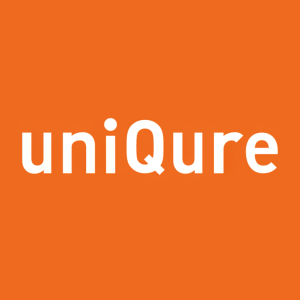uniQure Announces Orphan Drug Designation Granted to AMT-191 for the Treatment of Fabry Disease
Rhea-AI Summary
uniQure N.V. (NASDAQ: QURE) announced that the U.S. FDA has granted Orphan Drug Designation to AMT-191, their investigational gene therapy for Fabry disease. This follows the dosing of the first patient in a U.S. multi-center, open-label Phase I/IIa trial in August 2024. AMT-191 is a one-time intravenously administered AAV5-based gene therapy targeting the liver to produce GLA protein.
The Phase I/IIa trial will include two cohorts of up to six adult male patients each, with low and high doses. Patients will be followed for 24 months to assess safety, tolerability, and early efficacy signs. The Orphan Drug Designation provides incentives including tax credits, grants, fee waivers, and seven years of market exclusivity upon approval.
Positive
- FDA granted Orphan Drug Designation to AMT-191 for Fabry disease treatment
- Phase I/IIa clinical trial of AMT-191 has begun with first patient dosed
- Potential for one-time treatment addressing limitations of current chronic therapies
- Orphan Drug Designation provides incentives and market exclusivity upon approval
Negative
- Early-stage clinical trial with efficacy yet to be proven
- patient population (up to 12 adult males) in the initial study
News Market Reaction – QURE
On the day this news was published, QURE declined 5.78%, reflecting a notable negative market reaction.
Data tracked by StockTitan Argus on the day of publication.
LEXINGTON, Mass. and AMSTERDAM, Sept. 23, 2024 (GLOBE NEWSWIRE) -- uniQure N.V. (NASDAQ: QURE), a leading gene therapy company advancing transformative therapies for patients with severe medical needs, today announced that the U.S. Food and Drug Administration (FDA) has granted Orphan Drug Designation to AMT-191, uniQure’s investigational gene therapy for the treatment of Fabry disease, a rare, inherited genetic disease. In August 2024, uniQure announced the dosing of the first patient in its U.S., multi-center, open-label Phase I/IIa trial of AMT-191.
“This important designation highlights the need for new gene therapies like AMT-191 for patients with Fabry disease with the potential of delivering meaningful benefit given the suboptimal effectiveness of current chronic treatments,” stated Walid Abi-Saab, M.D., chief medical officer of uniQure. “This designation supports our Phase I/IIa clinical trial and we look forward to rapidly generating clinical proof-of-concept data and providing initial data in 2025.”
In patients with Fabry disease, a pathogenic variant in the galactosidase alpha (GLA) gene leads to α-galactosidase A (aGAL-A) enzyme deficiency, which in turn results in a progressive accumulation of lipids in multiple cell types, including kidney and heart cells, eventually resulting in a multi-system disorder. AMT-191 is a one-time intravenously administered investigational AAV5-based gene therapy that uses a proprietary, highly potent promoter to deliver a GLA transgene designed to target the liver to produce GLA protein.
The Phase I/IIa clinical trial of AMT-191 will be conducted in the United States. The multicenter, open-label trial consists of two cohorts with up to six adult male patients each: a low-dose cohort of 6x1013 gc/kg and a high-dose cohort of 3x1014 gc/kg delivered through a one-time intravenous infusion. Patients will continue to receive their regular enzyme replacement therapy until the criteria for withdrawal is met and will be followed for a period of 24 months. The trial will explore the safety, tolerability, and early signs of efficacy by measuring the expression of lysosomal enzyme aGLA-A. Additional details are available on www.clinicaltrials.gov (NCT06270316).
The FDA’s Orphan Drug Designation provides a special status for investigational drugs being developed for rare diseases considered to affect only up to 200,000 people in the United States. Orphan drug status provides certain incentives, including tax credits, grants and waiver of certain administrative fees for clinical trials as well as seven years of market exclusivity in the United States following drug approval.
About Fabry Disease
Fabry disease is an Xlinked- genetic disorder resulting from a deficiency of GLA. Based on a 2020 study published in the Journal of Therapeutics and Clinical Risk Management, the prevalence is estimated to be between one in 40,000 and one in 117,000 individuals. The current standard of care for Fabry disease is bi-weekly infusions of enzyme replacement therapy, a treatment with limited effectiveness in many patients due to poor cross-correction, with inefficient clearance of substrates in the target organs, in particular the kidney and the heart.
About uniQure
uniQure is delivering on the promise of gene therapy – single treatments with potentially curative results. The approvals of uniQure’s gene therapy for hemophilia B – an historic achievement based on more than a decade of research and clinical development – represent a major milestone in the field of genomic medicine and ushers in a new treatment approach for patients living with hemophilia. uniQure is now advancing a pipeline of proprietary gene therapies for the treatment of patients with Huntington's disease, refractory temporal lobe epilepsy, ALS, Fabry disease, and other severe diseases. www.uniQure.com
uniQure Forward-Looking Statements
This press release contains forward-looking statements. All statements other than statements of historical fact are forward-looking statements, which are often indicated by terms such as "anticipate," "believe," "could," “establish,” "estimate," "expect," "goal," "intend," "look forward to", "may," "plan," "potential," "predict," "project," “seek,” "should," "will," "would" and similar expressions. Forward-looking statements are based on management's beliefs and assumptions and on information available to management only as of the date of this press release. Examples of these forward-looking statements include, but are not limited to, statements regarding the availability of initial clinical and proof-of-concept data in the Company’s open-label U.S. Phase I/IIa trial for Fabry disease; the Company’s plans to announce initial clinical data in 2025; and the AMT-191 trial design and the differentiated profile relative to other Fabry programs currently in clinical development. The Company’s actual results could differ materially from those anticipated in these forward-looking statements for many reasons. These risks and uncertainties include, without limitation, risks associated with the timing and advancement of the Company’s clinical programs; the Company’s interactions with regulatory authorities, which may affect the initiation, timing and progress of clinical trials and pathways to approval; risks associated with the implementation of the Company’s restructuring plans; the Company’s ability to continue to build and maintain Company infrastructure and personnel needed to achieve its goals following planned workforce reductions; the Company’s effectiveness in managing current and future clinical trials and regulatory processes; the continued development and acceptance of gene therapies; the Company’s ability to demonstrate the therapeutic benefits of its gene therapy candidates in clinical trials; the Company’s ability to obtain, maintain and protect intellectual property; and the Company’s ability to fund its operations and to raise additional capital as needed. These risks and uncertainties are more fully described under the heading "Risk Factors" in the Company’s periodic filings with the U.S. Securities & Exchange Commission (“SEC”), including its Annual Report on Form 10-K filed February 28, 2024, its Quarterly Reports on Form 10-Q filed May 7, 2024 and August 1, 2024, and in other filings that the Company makes with the SEC from time to time. Given these risks, uncertainties and other factors, you should not place undue reliance on these forward-looking statements, and the Company assumes no obligation to update these forward-looking statements, even if new information becomes available in the future.
uniQure Contacts:
| FOR INVESTORS: | FOR MEDIA: |
| Chiara Russo | Tom Malone |
| Direct: 617-306-9137 | Direct: 339-970-7558 |
| Mobile: 617-306-9137 | Mobile:339-223-8541 |
| c.russo@uniQure.com | t.malone@uniQure.com |








